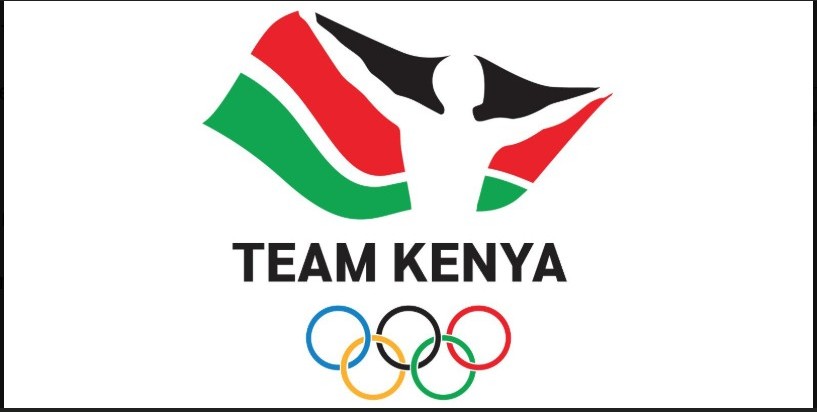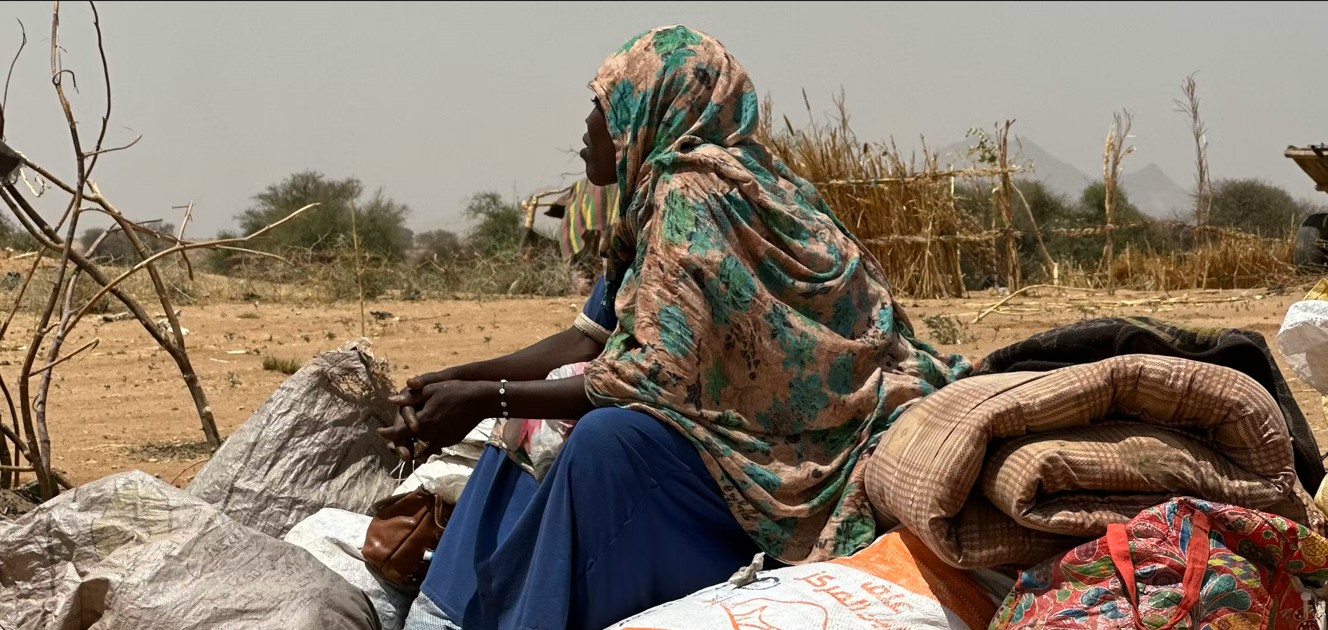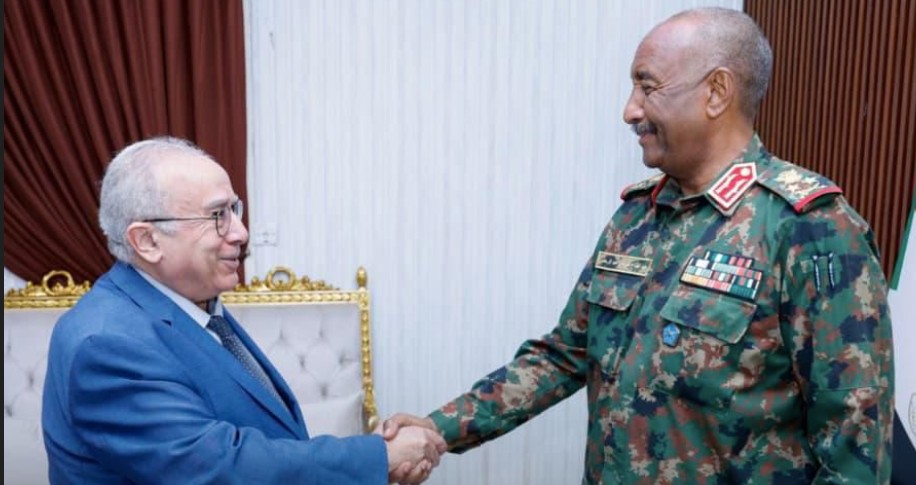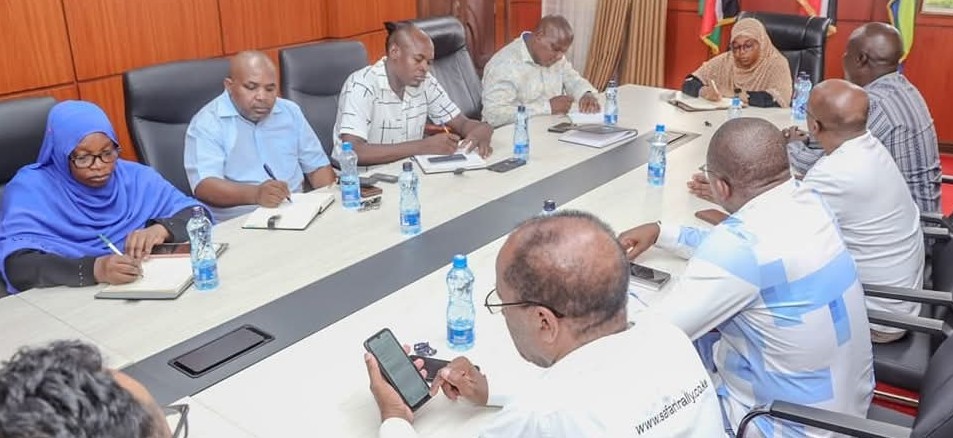No transitional government in Ethiopia, says PM Abiy Ahmed
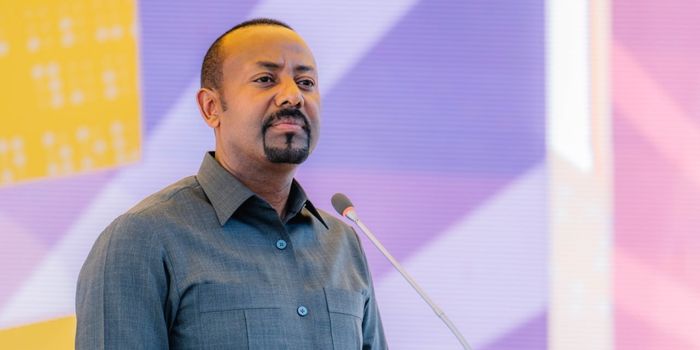
Abiy accused the forces behind the calls for a transitional government of wanting to divide Ethiopians.
Ethiopian Prime Minister Abiy Ahmed has dismissed the idea of a transitional government as a possible path, following persistent calls for this by various political parties since he took office in 2018.
Abiy announced this at the close of the national dialogue's agenda-gathering session, during which he discussed various topics and emphasised the government's dedication to implementing the meeting's outcomes.
More To Read
- Ethiopian PM calls for homegrown AI to propel Africa's development
- Prime Minister Abiy Ahmed re-elected president of Ethiopia's ruling party
- Ethiopia hosts 2nd annual forum on Red Sea regional cooperation amid tensions
- Ethiopia launches historic national dialogue in Addis Ababa to address issues
- Ethiopian military critical to Somalia's stability, anti-terror war - army chief
- Ethiopian PM Abiy Ahmed appoints Redwan Hussien as spy chief
"A transitional government is an idea that is usually raised. There will be no transitional government in Ethiopia. Only an elected government will exist in Ethiopia," he said, as reported by the Addis Standard, adding that the government is unable to execute the idea of the transitional government.
Abiy further accused the forces behind the calls for a transitional government of wanting to divide Ethiopians.
"It is the forces' idea, not Ethiopians'. When Ethiopians encounter and talk with foreigners speaking a different language, they think they are civilised. However, Ethiopia is the source of civilisation," he told this first national dialogue gathering that took place in Addis Ababa from May 29 to June 4.
The national dialogue process has faced significant criticism, with the commission being rejected by major opposition parties and accused of bias, lacking inclusivity, and serving political purposes.
Among the parties that have called for a transitional government in Ethiopia is the Oromo Federalist Congress (OFC), which issued a statement in 2021, asking for the immediate establishment of an interim government chaired by an individual accepted by major stakeholders.
The OFC proposed that this government serve for three to six months, its mandates being to maintain law and order, undertake the charting of a common roadmap, and facilitate the national dialogue processes.
"All parties will begin negotiations on the formation of an all-inclusive transitional government that will last for 18 months. No major stakeholder shall be excluded from these negotiations," the statement said.
The OFC noted that the Oromo people and Ethiopians at large have been hoping for a "successful democratic transition through honest and genuine national dialogue" since Abiy took over power after 27 years of one-party authoritarian rule.
Such a transition, the statement said, could "lead the country to durable peace, democratic governance, and meaningful economic development, which in turn could pull millions of our citizens out of poverty".
"However, the incumbent government quickly moved to fulfil its ambition of a one-party rule that squandered the opportunity for a real democratic transformation, dashing the hopes of millions of people who were dreaming of freedom and democracy," the OFC said.
Ethiopia is a multi-party federal democracy whose legislative authority lies with a government headed by an executive prime minister and the Federal Parliamentary Assembly, which is made up of the elected House of People's Representatives, which has 547 members, and the House of Federation, which has 110 members.
The PM is chosen by the party in power, currently the Prosperity Party, in a process every five years that involves multi-party democratic national and federal state elections.
Ethiopia also has a president, who is elected by the House of People's Representatives and serves for six years. Sahle-Work Zewde has held this role since 2018 and was the first woman to be elected to the post.
Ethiopia adopted federalism in 1991, when the Ethiopian People’s Revolutionary Democratic Front (EPRDF), a coalition of four major parties, came to power. The primary aim of Ethiopian federalism is to accommodate the country’s diverse ethnic groups.
Before 1991, the country had a centralised unitary government that suppressed diversity and restricted ethnic groups from using their languages in official settings and schools.
The prime minister established the Prosperity Party by merging three of the parties that made up the EPRDF, as well as its smaller affiliates.
Abiy addressed some of the demands from various ethnic groups for regional status and created three additional regions between 2019 and 2023. The system has allowed many ethnic groups to exercise self-rule in areas where they constitute the majority.
Ethnic minorities are also entitled to form local governments, such as district administrations, and to exercise self-rule in areas where they constitute the majority.
However, some experts claim that one of the primary challenges of Ethiopian federalism lies in its inability to resolve conflicts, as most are instigated partly by the system’s attempt to empower a particular ethnic group in an area.
The conditions necessary for democratic change through the one-person, one-vote system do not exist in Ethiopia, which has never had a popularly elected leader.
The Prime Minister himself ascended to power through an elite-driven decision and has been criticised as using his authority to divide and rule and stoke inter-ethnic and intra-ethnic conflicts.
Abiy has also been accused of implementing a repressive and authoritarian regime to maintain his hold on power and of lacking both the moral and ethical standing to speak on democracy.
Top Stories Today






